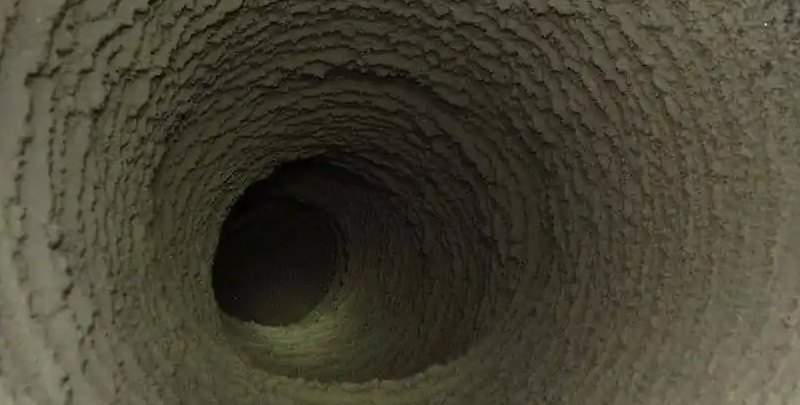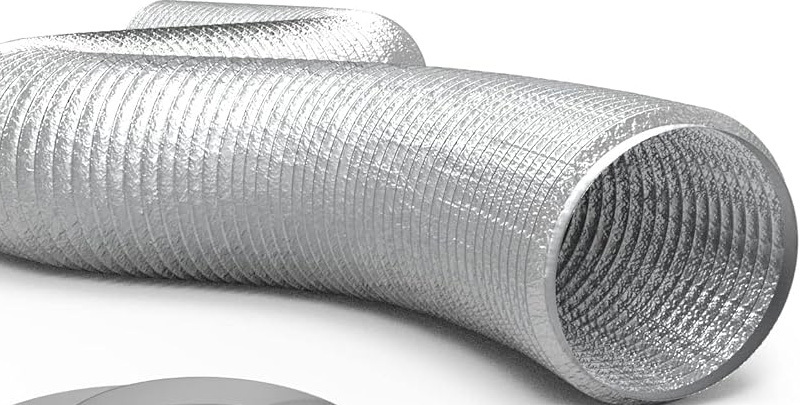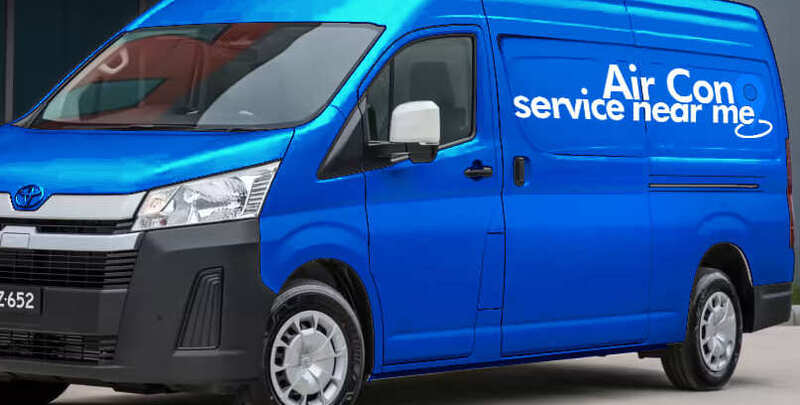When considering the performance of residential heating, ventilation and air conditioning (HVAC) systems, one question that often arises is whether dirty ducts can indeed impact the efficiency and efficacy of HVAC equipment.
The short answer is yes, but to truly understand the causes and effects of dirty ducts, it is essential to delve into the functions of the HVAC components and explore the importance of regular maintenance.
Understanding the Role of Ducts in HVAC Systems
Ducts serve as the conduits for transporting conditioned air throughout your home. They are tasked with delivering cool or warm air to various rooms, depending on the need.
Therefore, any dirt or debris accumulation in the ducts can negatively affect the airflow and efficiency of the heating and cooling systems.
How Dirty Ducts Impact HVAC Efficiency
Dirty ducts have been linked to reduced HVAC efficiency, resulting in increased energy usage. When air filters become clogged due to dirt and debris, airflow through the HVAC system is obstructed.
Consequently, the system must work harder to maintain the desired indoor temperature, leading to increased energy consumption and a decline in energy efficiency. This puts extra strain on HVAC equipment, which may shorten its lifespan and impair its performance.
In addition to increased energy consumption, dirty ducts can hinder the ability of HVAC systems to deliver optimal heating and cooling loads within your home. This can lead to uneven room temperatures, indoor air quality issues, and may even contribute to the growth of mould and mildew.
Maintaining clean ducts is essential for preserving the indoor environment and ensuring that HVAC efficiency is maximised.
Natural Ventilation vs Mechanical Cooling
To appreciate the role of clean ducts in HVAC systems, it’s essential to recognise the difference between natural ventilation and mechanical cooling. Natural ventilation relies on the natural movement of air through openings such as windows and doors. It is driven by wind and other atmospheric factors but has limited control over indoor temperature and humidity levels.
On the other hand, mechanical cooling utilises specifically designed systems like air conditioners, heat pumps, or space heating to deliver precisely controlled indoor conditions. HVAC systems are designed to provide heating, ventilation, and air conditioning within one single system, offering the highest levels of comfort.
Within this framework, ensuring clean ducts becomes crucial for maximising performance and efficient operation.
Indoor Air Quality Issues
Dirty ducts can also negatively affect indoor air quality, as particles such as dust, pollen, pet dander, and volatile organic compounds (VOCs) accumulate in the ductwork. As these particles circulate through conditioned spaces, they can cause respiratory problems for occupants and exacerbate existing allergies or asthma symptoms.
Ensuring clean ducts can contribute to better indoor air quality and ultimately, healthier living.

Detecting Dirty HVAC Ducts: A Few Tell-Tale Signs
At times, it can be quite puzzling to determine when your HVAC ducts need a scrub. You might ponder, “What should I keep a keen eye on?” Well, you’re in the right place. Here are a few prominent signs that might say your ducts need a good clean:
Dust Build-up
When you start noticing more dust settle around the house despite regular cleaning, this could be a red flag. Dirty ducts can be a major culprit, blasting grime throughout every nook and cranny in your humble abode.
Inconsistent Airflow
Having a bit of a walkabout in your home and discovering fluctuating temperatures in different rooms? This could indicate an accumulation of debris or dirt in your ducts, which hinders proper airflow, leaving rooms with uneven heating or cooling.
Rising Energy Bills
Have your energy bills shot up like a startled wallaby without any clear cause? Blocked ducts can make your system work much harder to circulate air, guzzling up more energy in the process. A sudden spike in your bills might just be pointing towards dirty ducts.
Unpleasant Odours
When you detect funky or stale smells wafting through your living quarters, don’t just shrug it off. It might be that your ducts are harbouring mould or musty scents that need addressing.
Exacerbated Allergies
It’s not just dust bunnies in the ducts to worry about. Pollen, pet dander or mould spores can gather too, sending allergens through the house. When folks at home start sneezing or wheezing more than usual, it might be time to give the ducts a once-over.
Visible Mould or Debris
Occasionally, the answer is right before your eyes. If you spot mould growth or see debris poking out from the vents, take it as a not-so-subtle hint that your ducts need attention.
Other Key Factors Affecting HVAC Performance
HVAC performance is not solely reliant on the cleanliness of ducts. Several other factors contribute to the efficient functioning of this integrated system, such as:
- Proper installation: An adequately installed HVAC system is critical for optimal performance and energy efficiency.
- System size: Choosing the right-sized HVAC equipment for your home is essential to avoid overloading and short-cycling, which can lead to decreased efficiency and increased wear and tear.
- Equipment maintenance: Regular maintenance of HVAC systems helps ensure that all components are working correctly and efficiently, thus prolonging the life of the equipment and preventing costly repairs down the line.
- Building design and insulation: The design and insulation levels of a building play a vital role in determining heating and cooling loads, as well as the overall efficiency of the HVAC system.
- Solar radiation and shading: Solar radiation can lead to heat gains or losses, impacting the heating and cooling loads within a home. Proper shading and window treatments can contribute to improved energy efficiency.
- Sealing of ducts and vents: Ensuring tight seals around ducts and vents prevents conditioned air leakage, contributing to better energy efficiency and overall HVAC performance.
Measuring HVAC Performance
HVAC performance measurement is a multifaceted process that takes into account factors such as energy consumption, heating load and cooling load, and how energy efficient the operation is. Key performance indicators (KPIs) include:
- Seasonal Energy Efficiency Ratio (SEER): A measure of the efficiency of air conditioning systems, indicating the cooling output (in BTUs) per energy consumed (in watt-hours).
- Annual Fuel Utilisation Efficiency (AFUE): A ratio used to evaluate the efficiency of heating systems, representing the percentage of fuel energy content converted into useful heat output.
- Heating Seasonal Performance Factor (HSPF): This metric is utilised for heat pumps and quantifies the heating output per amount of electricity consumed.
By understanding these KPIs, homeowners can make informed decisions regarding the maintenance, upgrades, and replacements of their HVAC systems to achieve improved performance and efficient energy use by energy service companies.
Implementing a Maintenance Programme
To ensure optimal HVAC system performance, it is essential to establish a regular maintenance programme that involves:
- Changing air filters: Replacing air filters on your heating and cooling equipment regularly prevents clogs and maintains an unobstructed airflow.
- Cleaning ducts and vents: Properly cleaned ducts and vents promote efficient HVAC functioning and mitigate the risk of mould growth or indoor air quality issues.
- Checking and calibrating thermostats: Ensuring the accuracy of thermostat readings provides better control over the HVAC system’s operation.
- Inspecting and servicing equipment: Regularly scheduled inspections of equipment help identify any potential issues and prevent malfunctions.
- Sealing ducts: Ensuring tight seals around ducts can prevent conditioned air leakage, conserving energy.
So yes, there is a direct correlation between dirty ducts and reduced performance in HVAC systems. Homeowners must invest in an ongoing maintenance programme that ensures clean ducts and optimal indoor air quality, ultimately leading to significant energy savings and comfortable living spaces.

The Right Professional for Your HVAC Needs
Given the considerable impact of dirty ducts on HVAC performance, many homeowners reach out to industry professionals for assistance. They are the best equipped to mitigate issues due to their specialised training and comprehensive understanding of HVAC mechanics.
Let’s discuss the key advantages of this approach:
- Expertise and knowledge: HVAC professionals have substantial experience in heating, ventilation and air conditioning systems. This expertise means they can expertly navigate complex issues that might befuddle the average bloke. They understand the nuances of HVAC systems in detail, bringing forth a level of proficiency that achieves effective results.
- Appropriate tools and equipment: Without the correct tools, cleaning and maintaining HVAC systems, even in commercial buildings could become a herculean task. Luckily, HVAC professionals tote a variety of specialised equipment that can facilitate efficient and thorough service. These range from inspection cameras that snake through the ductwork, to powerful vacuum systems capable of sucking up every last bit of grime and debris.
- Preventive maintenance: Beyond the immediate need for clean ducts, variable speed fans, and heat exchanger, HVAC professionals offer invaluable service through their preventive approach. They regularly evaluate the overall health of HVAC systems to address any budding concerns before they become full-on problems. This work significantly lessens the chance of undesirable HVAC-related surprises down the road.
- Education and recommendations: Not only do these professionals get their hands dirty in providing tangible solutions, but they also play an essential role in educating homeowners about proper HVAC maintenance. They can provide practical tips and recommendations to ensure that your systems remain in top condition, enabling them to run like a dream.
- Safety: While it might sound like a bit of an adventure to tackle HVAC system upkeep on your own, it’s not without its perils. Incorrect handling can lead to damage and potential safety hazards. A professional HVAC technician is aware of these risks and takes every precaution necessary to ensure that the job is done safely.
- Time and cost-efficiency: While it might sound counterintuitive to suggest that engaging in a professional service is cost-effective, a sincere evaluation suggests the opposite to be true. By hiring an HVAC professional, you are investing in cost efficiency. Proper maintenance and early problem rectification can prevent hefty repair or replacement bills. The icing on the cake — it saves you valuable time!
Clean Ducts Equal to Clean Performance
Dirty ducts not only reduce HVAC performance but also increase energy consumption, create an uncomfortable living environment and potentially shorten the system’s lifespan. Therefore, it’s imperative to understand your HVAC system, watch for signs of grime build-up, acknowledge the importance of factors like proper installation and ventilation, and maintain regular performance checks.
Professionally trained technicians can offer expert maintenance, prevent future issues, and educate homeowners on effective system upkeep. Especially with the complexities and technicalities involved, hiring a professional is more of a necessity than a luxury.
Please note: This information is provided for advice purposes only. Regulations differ from state to state, so please consult your local authorities or an industry professional before proceeding with any work. See our Terms & Conditions here.

